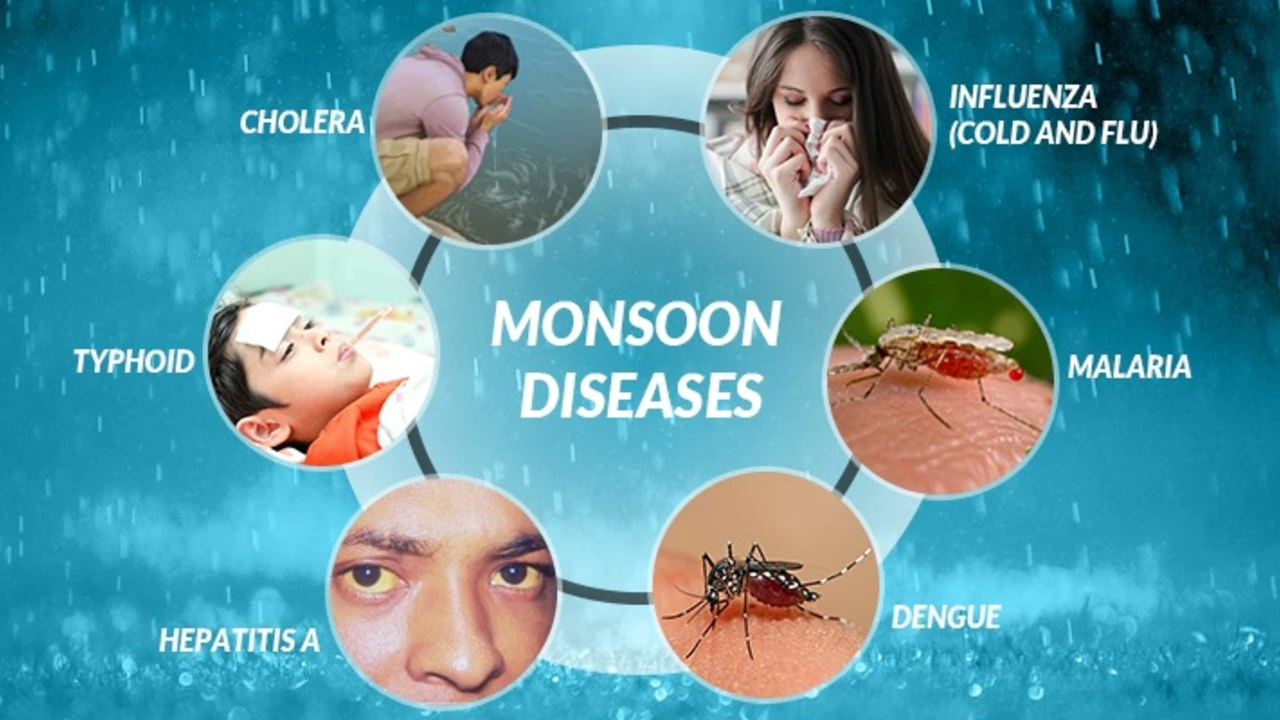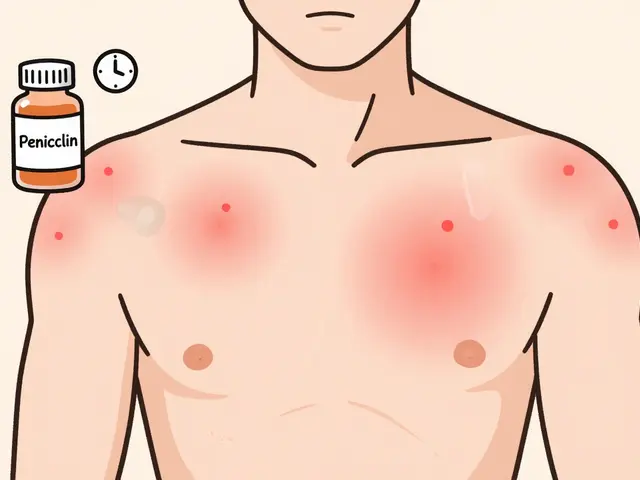Understanding Dengue Fever
Dengue fever is a mosquito-borne illness that is prevalent in tropical and subtropical regions around the world. It's a disease that has been a significant public health challenge for many years, causing a high number of illnesses and deaths. Symptoms of dengue fever can vary from mild fever, rash, and muscle or joint pain, to severe dengue hemorrhagic fever or dengue shock syndrome. Treatment for dengue fever is typically symptomatic and supportive, as there is no specific antiviral treatment available.
Introduction to Albendazole
Albendazole is a broad-spectrum antiparasitic medication that is primarily used to treat a variety of parasitic worm infestations. It is an oral medication that works by keeping the worms from absorbing sugar, effectively starving them and causing their death. While Albendazole is not traditionally used to treat viral illnesses such as dengue fever, recent research has indicated that it may have potential in controlling the spread of the disease.
Albendazole's Role in Controlling Dengue Fever
Albendazole has shown promise in the control of dengue fever by targeting the mosquitoes that carry the dengue virus. The medication has been found to be effective in killing the larvae of mosquitoes, reducing their populations and thereby reducing the spread of the virus. This is a significant breakthrough in the battle against dengue as it offers a new and potentially effective way to control the disease at its source.
The Impact of Albendazole on Dengue Fever Rates
Studies have shown that the use of Albendazole in areas with high rates of dengue fever has led to a noticeable reduction in the number of cases. While the medication does not directly treat those already infected with the virus, it significantly reduces the number of new infections by controlling the mosquito population. As a result, communities that have adopted the use of Albendazole have seen a drop in the incidence of dengue fever.
Future Perspectives of Albendazole in Dengue Fever Control
While the use of Albendazole in the control of dengue fever is still a relatively new concept, the results so far have been promising. As more research is conducted, it is expected that the drug will become a key tool in the fight against this debilitating disease. However, it is important to note that the use of Albendazole is not a standalone solution. It should be used in conjunction with other preventive measures such as the use of mosquito nets, insect repellent, and the elimination of mosquito breeding sites.






joe balak
Wait, albendazole kills mosquito larvae? That's wild. I thought it was just for worms.
Never heard this before.
Iván Maceda
America already figured this out years ago 🇺🇸😂
Other countries are just catching up now.
Vrinda Bali
This is a bioweapon. Albendazole is being pushed by Big Pharma to control populations in the Global South. They don't want you to know the truth. The WHO is complicit. Check the patents.
Why would a deworming drug suddenly kill mosquitoes? Coincidence? I think not.
John Rendek
This is actually a smart approach. Targeting the vector instead of the virus makes sense.
Combine it with larvicides and public education and you’ve got a real shot at cutting transmission.
Sonia Festa
So we’re just gonna sprinkle dewormer all over the swamp water now? Sounds like a bad episode of Black Mirror. 🤡
Sara Allen
I heard this is just a cover for mass sterilization. They put it in the water supply and then no one can have kids. I know a guy whose cousin’s neighbor’s dog died after drinking from a puddle after they sprayed it. It’s not safe. And why are they doing it in poor areas first? Hmmmm.
They’re testing it on us.
Amina Kmiha
ALBENDAZOLE IS A GATEWAY DRUG TO GLOBAL DEPOPULATION. 🚨
They’ve been putting it in mosquito nets since 2018. The CDC knows. The WHO knows. But they won’t tell you because you’re not ready.
Look at the numbers. Dengue cases dropped. Coincidence? Or were you just programmed to believe this is safe?
Ryan Tanner
This is actually kind of genius. 🙌
Use something we already have, cheap, safe, and turn it into a vector control tool.
Why didn’t anyone think of this sooner?
Jessica Adelle
It is profoundly irresponsible to suggest that an anthelmintic, originally formulated for gastrointestinal nematodes, should be repurposed for entomological vector control without rigorous, peer-reviewed, longitudinal environmental impact studies. This is not science. It is reckless experimentation.
Emily Barfield
If we’re altering ecosystems by introducing pharmaceuticals into aquatic habitats to kill insect larvae… what does that say about our relationship with nature?
Are we so desperate to control disease that we’ve abandoned ecological humility?
Are we becoming the very plague we seek to eradicate?
Albendazole might reduce mosquito numbers-but at what cost to aquatic food chains, pollinators, or non-target species?
And if we’re solving one problem by creating ten others… is it really a solution?
Or just a symptom of our addiction to technological fixes over systemic change?
Who benefits? Who pays? Who gets to decide?
These aren’t just medical questions-they’re philosophical ones.
Sai Ahmed
This is a distraction. The real issue is poor sanitation and stagnant water. Albendazole? It’s a Band-Aid on a bullet wound. And someone’s making money off this.
Albert Schueller
The study cited is from a journal with a 0.3 impact factor. The sample size was 47 people in one village. This isn't science. It's a press release dressed up as a breakthrough. Also, albendazole is not approved for this use. The FDA hasn't even reviewed it. Don't be fooled.
Ted Carr
Ah yes, the classic: 'Let's throw a drug at a problem we don't understand.'
Next up: using Prozac to calm down angry bees.
Brilliant.
Rebecca Parkos
I live in Florida and we’ve been dealing with this for years. I’m so tired of mosquitoes. If this actually works, I’m crying. Please tell me it’s real. I need hope.
Bradley Mulliner
This is exactly the kind of lazy, half-baked pseudoscience that gives public health a bad name. You don’t fix a virus by poisoning insects with a drug meant for tapeworms. You fix the infrastructure. You fix the poverty. You fix the corruption. But no, let’s just sprinkle magic dust and call it a day.
Rahul hossain
In India, we’ve used larvicides for decades. Albendazole? Unproven. Unregulated. Dangerous. The government should focus on proper drainage and community awareness-not experimental pharmacology.
joe balak
Actually, there’s a 2023 study in PLOS Neglected Tropical Diseases showing albendazole disrupts chitin synthesis in mosquito larvae. It’s not just starvation-it’s developmental failure.
Not magic. Biochemistry.